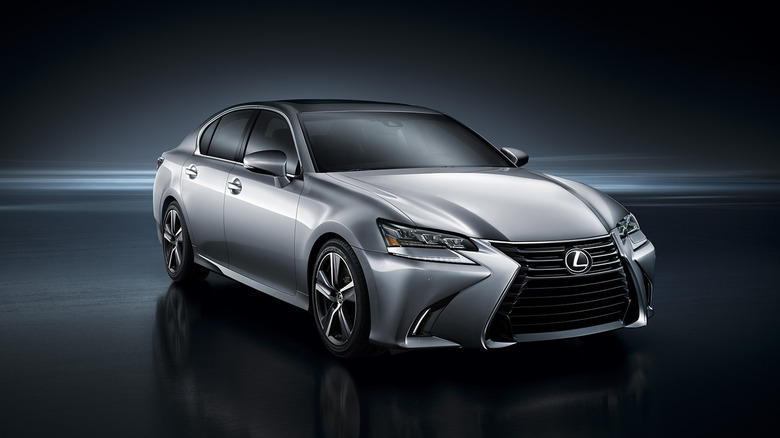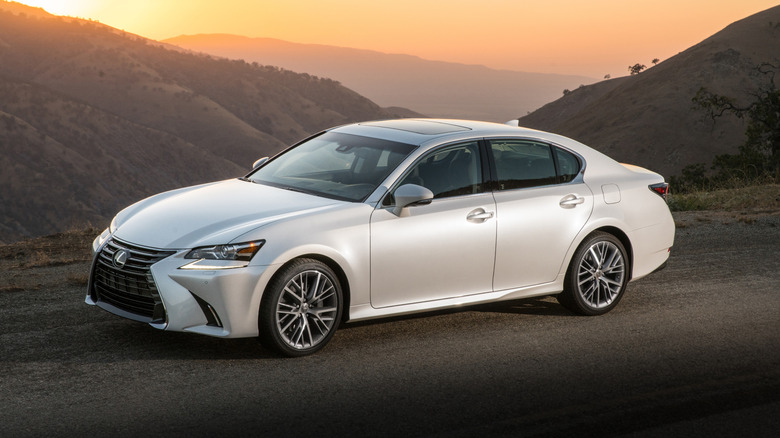Why Did Lexus Discontinue The GS?
Lexus debuted the first-generation GS in 1993 after mesmerizing the global auto industry with the original LS 400 in 1989, one of the most reliable production cars ever made. The brand unveiled the ES, its second car, in 1992. It became an instant hit with its renowned build quality and reliability. At the same time, its lower starting price and front-wheel drive platform made it more attainable than a comparable Mercedes C-Class or BMW 3-Series.
Lexus debuted the first-generation GS in 1993 to lock horns with the Mercedes-Benz E-Class and BMW 5-Series, and it came with Toyota's legendary 2JZ-GE straight-six engine and rear-wheel drive to settle the score. Unlike the ES, the GS rode on a bespoke architecture shared with Toyota's crown jewel, the Crown executive sedan, making it worthy of following the footsteps of the flagship LS.
However, the Lexus GS has always lagged behind the ES in the sales charts. Lexus tried shaking things up by introducing the V8-powered GS 400 for the second-gen variant, a hybrid for the third-gen, and the high-performance GS-F in 2016, but it wasn't enough to resurrect the GS' dwindling sales numbers.
Weak sales led to the demise of the Lexus GS
Lexus axed production of the GS in 2020 after four model generations, and it was a bittersweet moment for a car that industry experts regard as one of the core models of Lexus' global lineup. The Lexus GS initially sold well, but the ES has always been the volume seller of the two. The trend continued until the GS went out of production. In 2019, Lexus sold around 3,300 units of the GS, but it sold 51,336 ES models. Compared to the more than 111,000 units the Lexus RX crossover sold in the same year, it seems the GS' declining sales had more to do with shifting consumer preferences than rising prices.
The last Lexus GS was the Black Line package that launched in 2020. It was available for the GS350 F Sport and featured red accents and black exterior trim. The GS was among the last to utilize the N platform before parent company Toyota shifted to the all-new TNGA (Toyota New Global Architecture) series in 2018. The fifth-generation Lexus LS has migrated from the Toyota N platform to TNGA-L, which it shares with the all-new Crown sedan and Toyota Mirai fuel-cell electric car.

